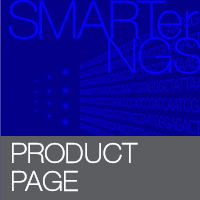Massively parallel cDNA sequencing, or RNA-seq, has become the gold standard for whole-transcriptome gene expression analysis and is widely used in numerous applications to study cell and tissue transcriptomes. However, despite its many advantages, RNA-seq can be challenging in some situations, including cases where input amounts are low or comprised of degraded RNA samples.
Takara Bio was a pioneer in the development of a low-input solution: RiboGone technology for rRNA removal from total RNA, which enables library construction from inputs spanning 10 ng to 100 ng. We integrated this technology into our SMARTer stranded RNA-seq kits, reducing the representation of rRNA in the final libraries and leading to exceptional performance with inputs as low as 10 ng. With the release of the SMARTer Stranded Total RNA-Seq Kit - Pico Input Mammalian, we were able to be successful with even lower inputs by incorporating ZapR™, a proprietary technology in which ribosomal cDNA is removed after creating the complete cDNA library, thereby enriching RNAs of interest—namely mRNA and non-polyadenylated RNA.
The latest update to the original kit, the SMARTer Stranded Total RNA-Seq Kit v3 - Pico Input Mammalian (referred to as “Pico v3," see workflow in Figure 1) now features the inclusion of unique molecular identifiers (UMIs). UMIs not only help mitigate PCR bias but also provide the user with the opportunity to identify true variance within the sample. Pico v3 provides a unique, sensitive, and ligation-free method to generate stranded, Illumina-ready cDNA libraries from an input range of 250 pg–10 ng of total mammalian RNA in about 7.5 hours.

Figure 1. Schematic of technology in the SMARTer Stranded Total RNA-Seq Kit v3 - Pico Input Mammalian. SMART technology is used in this ligation-free protocol to preserve strand-of-origin information. Random priming (represented by the green N6 Primer) allows the generation of cDNA from all RNA fragments in the sample, including rRNA. When the SMARTScribe™ II Reverse Transcriptase (RT) reaches the 5ʹ end of the RNA fragment, the enzyme’s terminal transferase activity adds a few nontemplated nucleotides to the 3ʹ end of the cDNA (shown as XXXXX). The Pico v3 SMART UMI Adapter (included in the SMART UMI-TSO Mix v3) base-pairs with the nontemplated nucleotide stretch, creating an extended template to enable the RT to continue replicating to the end of the oligonucleotide. The Pico v3 SMART UMI Adapter also contains 8 random nucleotides which function as the unique molecular identifiers for downstream data analysis. In the next step, the first round of PCR amplification (PCR 1) adds full-length Illumina adapters, including barcodes. The 5ʹ PCR Primer binds to the Pico v3 SMART UMI Adapter sequence (light purple), while the 3ʹ PCR Primer binds to the sequence associated with the random primer (green). The ribosomal cDNA is then cleaved by ZapR v3 in the presence of the mammalian-specific R-Probes. The resulting cDNA contains sequences derived from the random primer and the Pico v3 SMART UMI Adapter used in the reverse transcription reaction. This process leaves the library fragments originating from non-rRNA molecules untouched, with priming sites available on both 5ʹ and 3ʹ ends for further PCR amplification. These fragments are enriched via a second round of PCR amplification (PCR 2) using primers universal to all libraries. The final library contains sequences that allow clustering on any Illumina flow cell (see details in Figure 2).





